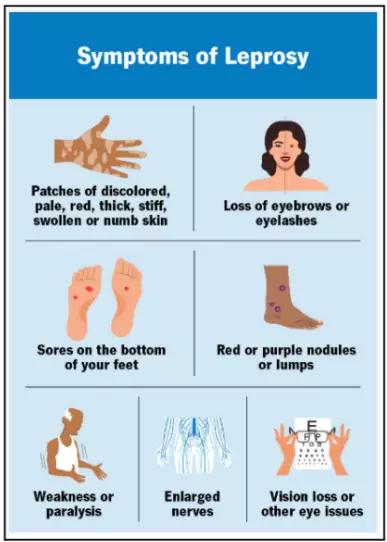Recently, the Supreme Court in “FEDERATION OF LEPY.ORGAN.FOLO . Vs UNION OF INDIA” case urged States and Centre to amend or repeal laws that discriminate against persons affected by leprosy.
There are many old laws (some over 145) that discriminate against people with leprosy, even if they are cured. These laws can:
- Stop them from getting elected to public offices.
- Allow divorce just because one partner has or had leprosy.
- Treat them unfairly in public and social life.
Supreme Court Directives
- Special Legislative Action Encouraged: The Supreme Court advised States to convene special one-day Assembly sessions or issue ordinances to remove discriminatory legal provisions against leprosy-affected persons.
- Deadline for Status Reports: States that have not submitted status reports must do so by October 2025; the National Human Rights Commission (NHRC) may also submit its findings.
- Accountability on State Governments: The Court emphasized that identifying and removing outdated, demeaning provisions is the responsibility of State governments, not the judiciary.
About Leprosy

- Leprosy, also known as Hansen’s Disease, is a chronic infectious disease that mainly affects the skin, peripheral nerves, eyes, and upper respiratory tract.
- Cause: It is caused by Mycobacterium leprae, a slow-growing bacterium transmitted primarily through droplets from the nose and mouth.
- Spread: Leprosy spreads mainly through prolonged close contact via droplets from the nose and mouth of untreated infected individuals.
- Cure and Treatment: Leprosy is completely curable with Multi-Drug Therapy (MDT) including dapsone, rifampicin and clofazimine, a free WHO-recommended treatment available globally since the 1980s.
|
Reasons for Discrimination Against Persons Affected by Leprosy
- Deep-Rooted Myths: Leprosy has historically been associated with fear, impurity, and divine punishment, leading to social exclusion and prejudice even after cure.
- Outdated Legal Provisions: Over 145 Central and State laws still contain derogatory clauses, reinforcing the idea that leprosy patients are unfit for public life or social participation.
- Visible Physical Disabilities: In advanced stages, untreated leprosy can cause deformities and disfigurement, which often lead to public fear, rejection, and discrimination in workplaces, schools, and communities.
- Fear of Contagion: A widespread but incorrect belief that leprosy is highly contagious causes unwarranted fear, despite it spreading only through prolonged close contact and being fully curable.
Legal Discrimination Faced by People Affected with Leprosy
- Legal Barriers to Public Office: Several laws prohibit persons affected by leprosy from contesting elections or holding public office.
- For example, Orissa Municipal Corporation Act, 2003, includes provisions that disqualify individuals affected by leprosy from contesting elections for the post of Corporator.
- Marriage and Family Law Discrimination:Before the 2019 Personal Laws (Amendment) Act, leprosy was a legal ground for divorce in Indian family laws.
- Stigma and Social Exclusion: Leprosy patients often face exclusion from educational institutions, workplaces, and even public transportation due to deep-rooted social stigma.
- The Visva Bharati Act of 1951, allows for the dismissal or removal of teaching or non-teaching academic staff, including those with contagious leprosy.
Government Initiatives for Leprosy
- National Leprosy Eradication Programme (NLEP) , 1983:Launched by the Government of India to eliminate leprosy as a public health problem through early detection and MDT distribution.
- India achieved the WHO target of eliminating leprosy as a public health problem in 2005, with a prevalence of less than 1 case per 10,000 population.
- NLEP is working towards further reducing transmission and achieving zero transmission by 2027.
- SPARSH Leprosy Awareness Campaign, 2017: Aimed to reduce stigma and promote awareness, especially in rural and tribal regions.
- Global Leprosy Strategy 2021–2030 (India’s commitment): India adopted WHO’s new global strategy to achieve zero transmission and zero disability due to leprosy by 2030.
- Personal Laws (Amendment) Act , 2019:Repealed leprosy as a ground for divorce, aligning family laws with human rights principles.
- Disability Inclusive Development Strategy , 2018: Promoted the inclusion of persons with disabilities, including those affected by leprosy, in social and economic development schemes.
Conclusion
Despite medical and legal progress, leprosy-affected persons still face discrimination due to outdated laws. The Supreme Court’s directive urges swift legal reform to ensure equality and restore their dignity.
![]() 31 Jul 2025
31 Jul 2025
